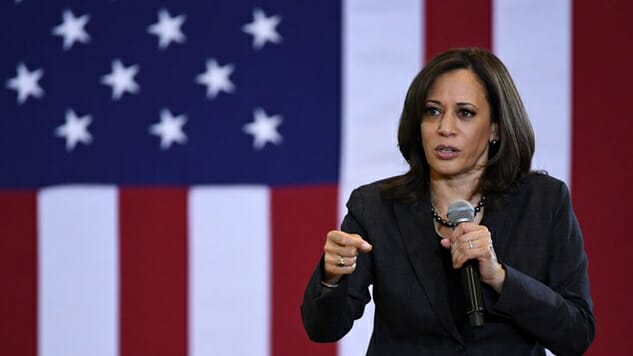The Kamala Harris Medicare for All Plan Is Just a Boneless Version of the Bernie Sanders Plan
Photo by Ethan Miller/Getty
Universal healthcare is an imperative, not just for the United States, but every country around the globe. That a government doesn’t do everything it can to protect its residents—the very people that it calls on to protect the country itself—is a deplorable symptom of the illness that is capitalism. This shouldn’t be a debate; folks should not need to worry about making ends meet for the necessities to live. Diabetics shouldn’t worry about paying for insulin. Victims of an accident shouldn’t refuse to call an ambulance to avoid skyrocketing bills.
Any presidential candidate that calls herself progressive but then offers a universal healthcare plan that leaves the door open for private insurance companies is a centrist that would rather maintain the status quo than offer substantive change. The latest example is Kamala Harris and her much touted, riddled-with-flaws Medicare-for-all plan.
-

-

-

-

-

-

-

-

-

-

-

-

-

-

-

-

-

-

-

-

-

-

-

-

-

-

-

-

-

-

-

-

-

-

-

-

-

-

-

-








































